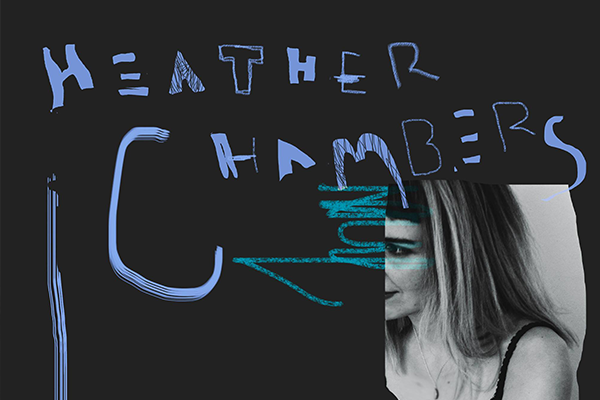FEATURE:
RUMI’S ‘THE GUEST HOUSE’: A DEEP DIVE
An age-old reminder that everything must pass.

Photo: Composite, courtesy of Luke Stackpoole, Szabo Viktor
How do you define something as timeless? If you look in the dictionary, it’ll tell you that it’s something that’s not restricted to a set period - as beautiful now as when it was created. One of the few things I have often found to be timeless is poetry, and one poem in particular that makes me feel this way is ‘The Guest House’ by Rumi.
Rumi was a 13th-century Persian poet whose works have been translated into different languages across the world. I first came across it on Coldplay’s album ‘A Head Full of Dreams’ (on the interlude track ‘Kaleidoscope’) but it has since popped up in my pursuit of mindfulness. Just in case you haven’t though, I’ve put the English translation of the poem below.
Every time that I read this poem I find in myself a sense of calm and understanding that I didn’t know I had. Emotions are not new to human beings as a whole, but they are new to each individual. You spend your entire life experiencing things through your emotions, and it’s almost impossible to know if someone experiences one emotion in the same way that you do. You can be taught the fundamentals of what an emotion is, and the difference between positive and negative feelings, but you’re rarely taught that feeling sad or angry can be any form of positive. I think this poem teaches us that, with time, accepting your negative emotions and moving to embrace them all can make it easier to deal with harder, more complicated feelings.
This is ultimately a poem about living in the moment. About loving yourself and being present for the life that you are living. It is never pleasant to experience “a depression, a meanness”, for “The dark thought, the shame, the malice” to take over and leave you feeling lost. But it is much better to “meet them... laughing”, to acknowledge that they are here, but that you still have control, than to let it drag you down into despair.
I have spent most of my life barricading the door to any “crowd of sorrows” that might want to enter, but it was only when I started to learn to let them in that I could fully deal with how I was feeling. There is something descriptively perfect in “violently sweep your house / empty” because in the saddest of times it can feel like you have nothing left to give. How can you possibly be happy again when you feel that bare? Being grateful, however, is something that this poem teaches us to help move us forward. It is certainly not easy to be grateful and accepting of the arrival of emotions and experiences that are intensely negative, and it’s something that you have to work on - to learn time and time again - but if you try then sometimes, even just for a moment, you can feel lighter. You remember that everything passes in time.
You will not feel this way forever, no matter the emotion.
I am not personally religious, and I’m not sure if I believe in anything guiding me from beyond, but despite this, I like to think that there is a reason I go through the challenges I do, even if it’s as simple as having the ability to appreciate the good things in life. I’m also not sold on the belief that you can’t know joy if you haven’t known pain, but I do think that there’s something to be said for using the pain that you have experienced to appreciate the joy. It is easier for me to find joy in the smallest of things (a good bowl of cereal, the laughs of my friends, a good book) having known pain and sorrow. It is not that I didn’t appreciate these things before, but that now I remember to be grateful for these experiences whilst they are happening.
To me, this poem is timeless. It transcends the boundaries of popularity and fashion, it goes beyond the time it was written. In fact, if you had asked me to guess when this was written the first time I heard it, I would almost definitely have guessed it to be in the past one-hundred years. Yet it’s from the 13th-century - a time for many that is beyond imagination. It’s themes on mental health; on loving yourself, on being yourself, are as relevant as ever. In an increasingly hectic world, we have to remember to take time to care for ourselves, and not to get swept into the darkness of it all. We have to remember to welcome all our emotions and experiences, to learn that our thoughts are not necessarily our own, but are passing through nonetheless. We should be kind to the guests that we have, and that it is ultimately (in my experience) better to feel something than nothing at all.
Rumi was a 13th-century Persian poet whose works have been translated into different languages across the world. I first came across it on Coldplay’s album ‘A Head Full of Dreams’ (on the interlude track ‘Kaleidoscope’) but it has since popped up in my pursuit of mindfulness. Just in case you haven’t though, I’ve put the English translation of the poem below.
The Guest House
This being human is a guest house.
Every morning a new arrival.
A joy, a depression, a meanness,
some momentary awareness comes
as an unexpected visitor.
Welcome and entertain them all!
Even if they’re a crowd of sorrows, who violently sweep your house
empty of its furniture,
still, treat each guest honourably.
He may be clearing you out
for some new delight.
The dark thought, the shame, the malice,
meet them at the door laughing,
and invite them in.
Be grateful for whoever comes,
because each has been sent
as a guide from beyond.
- Rumi
This being human is a guest house.
Every morning a new arrival.
A joy, a depression, a meanness,
some momentary awareness comes
as an unexpected visitor.
Welcome and entertain them all!
Even if they’re a crowd of sorrows, who violently sweep your house
empty of its furniture,
still, treat each guest honourably.
He may be clearing you out
for some new delight.
The dark thought, the shame, the malice,
meet them at the door laughing,
and invite them in.
Be grateful for whoever comes,
because each has been sent
as a guide from beyond.
- Rumi
Every time that I read this poem I find in myself a sense of calm and understanding that I didn’t know I had. Emotions are not new to human beings as a whole, but they are new to each individual. You spend your entire life experiencing things through your emotions, and it’s almost impossible to know if someone experiences one emotion in the same way that you do. You can be taught the fundamentals of what an emotion is, and the difference between positive and negative feelings, but you’re rarely taught that feeling sad or angry can be any form of positive. I think this poem teaches us that, with time, accepting your negative emotions and moving to embrace them all can make it easier to deal with harder, more complicated feelings.
This is ultimately a poem about living in the moment. About loving yourself and being present for the life that you are living. It is never pleasant to experience “a depression, a meanness”, for “The dark thought, the shame, the malice” to take over and leave you feeling lost. But it is much better to “meet them... laughing”, to acknowledge that they are here, but that you still have control, than to let it drag you down into despair.
I have spent most of my life barricading the door to any “crowd of sorrows” that might want to enter, but it was only when I started to learn to let them in that I could fully deal with how I was feeling. There is something descriptively perfect in “violently sweep your house / empty” because in the saddest of times it can feel like you have nothing left to give. How can you possibly be happy again when you feel that bare? Being grateful, however, is something that this poem teaches us to help move us forward. It is certainly not easy to be grateful and accepting of the arrival of emotions and experiences that are intensely negative, and it’s something that you have to work on - to learn time and time again - but if you try then sometimes, even just for a moment, you can feel lighter. You remember that everything passes in time.
You will not feel this way forever, no matter the emotion.
I am not personally religious, and I’m not sure if I believe in anything guiding me from beyond, but despite this, I like to think that there is a reason I go through the challenges I do, even if it’s as simple as having the ability to appreciate the good things in life. I’m also not sold on the belief that you can’t know joy if you haven’t known pain, but I do think that there’s something to be said for using the pain that you have experienced to appreciate the joy. It is easier for me to find joy in the smallest of things (a good bowl of cereal, the laughs of my friends, a good book) having known pain and sorrow. It is not that I didn’t appreciate these things before, but that now I remember to be grateful for these experiences whilst they are happening.
To me, this poem is timeless. It transcends the boundaries of popularity and fashion, it goes beyond the time it was written. In fact, if you had asked me to guess when this was written the first time I heard it, I would almost definitely have guessed it to be in the past one-hundred years. Yet it’s from the 13th-century - a time for many that is beyond imagination. It’s themes on mental health; on loving yourself, on being yourself, are as relevant as ever. In an increasingly hectic world, we have to remember to take time to care for ourselves, and not to get swept into the darkness of it all. We have to remember to welcome all our emotions and experiences, to learn that our thoughts are not necessarily our own, but are passing through nonetheless. We should be kind to the guests that we have, and that it is ultimately (in my experience) better to feel something than nothing at all.
MORE:



